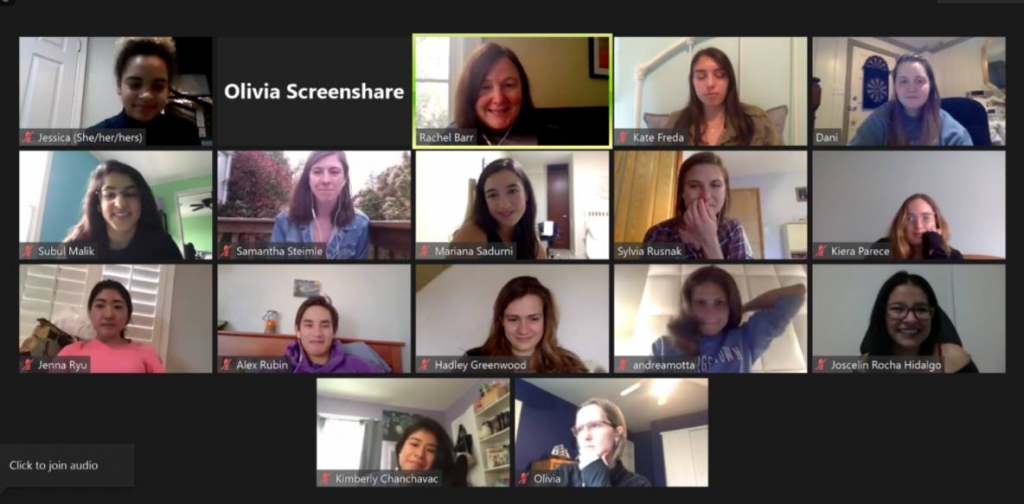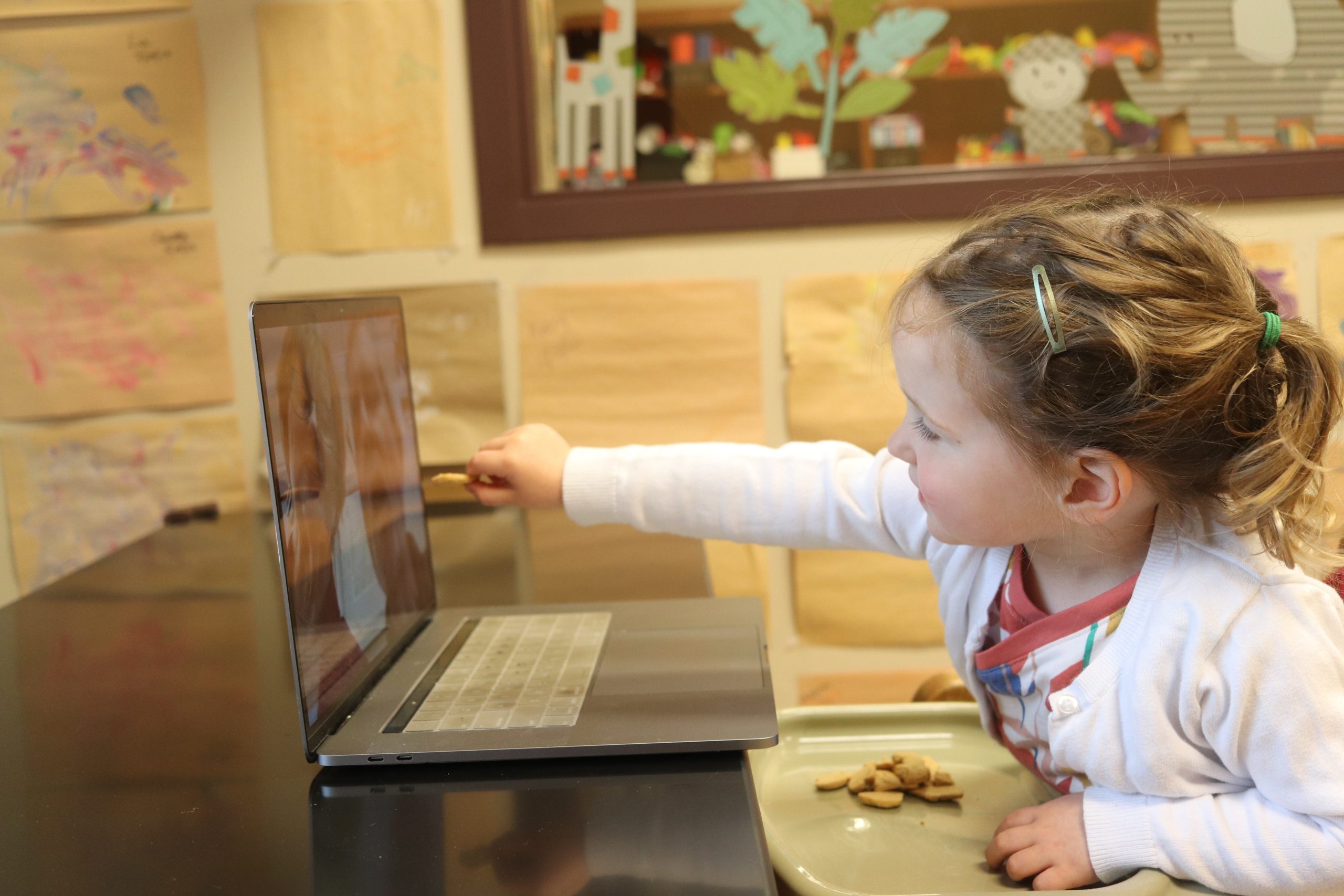Study by Professor Finds Video Chat Helps Grandparents Maintain Relationships with Grandchildren, Diminishes Feelings of Isolation
A recent study found that video chat helped grandparents overcome social isolation during the pandemic as well as maintain a vital connection with their young grandchildren. Department of Psychology professor Rachel Barr, Ph.D., collaborated with Gabrielle Strouse (University of South Dakota), Georgene Troseth (Vanderbilt), Jennifer Zosh (Penn State, Brandywine), Lauren Myers (Lafayette College) and Elisabeth McClure (the Lego Foundation) on the latest AARP report Boomers and Zoomers: Grandparents Using Video Chat to Connect with Young Grandchildren.
Though video chat has been available to the public since 2003, the pandemic was when many people first started using it frequently and for multiple purposes.
“It has turned out to be a stable mode of communication and has been very helpful to maintain family connections when separation occurred during the pandemic,” says Barr. “However, now that many families have learned how to use video chat, it promises to allow for more frequent contact between grandparents and their grandchildren even after the pandemic has ended.”
Creating Connections With Virtual Conversations

Professor Rachel Barr
A developmental psychologist, Barr’s research focuses on how very young children are exposed to and impacted by technology, including examining ways in which technology’s potential can be used to support families to better their child’s development.
Due to their average age range, grandparents were considered at high risk of contracting COVID-19 and many were consequently separated from their grandchildren for long periods of time. The report was led by AARP researcher Brtittne Kakulla and described a study of almost 1600 grandparents and parents of children under 5 years old who reported that video chat was a frequent source of contact.
They found that grandparents who video chatted more and engaged in a greater variety of activities during video chat sessions such as peek-a-boo, scavenger hunts, singing, reading books, and show and tell, “reported higher perceived closeness to their grandchildren and enjoyed the calls more, particularly those who were geographically more separated.”
“In addition, those who were geographically more distant enjoyed the contact the most,” Barr explains. “It also has important implications for many other types of ongoing separation that occurred before and during the pandemic including children separated from their parents due to immigration, employment, deployment, incarceration, divorce, and child welfare system separations. While in-person contact is the best, video chat can supplement contact during times of separation.”
While in-person gatherings can be held more safely due to increased numbers of vaccinations, there is a potential for ongoing contact between grandparents and grandchildren between in-person meetings through video chats. Barr says that this can allow grandparents “to continue to build their relationships, share intergenerational stories and experiences and to have a window into their grandchildren’s lives as they unfold.”
Barr Builds Bridges

Lab meeting with Georgetown students over Zoom
In this latest study, Barr worked with Georgetown undergraduates, graduate students and alumni. Jenna Ryu (C’21) completed her honors projects using data collected for this project and Kimberly Chanchavac (C’21) and Winni Zheng (C’23) contributed to data collection and analysis.
Alumna Olivia Blanchfield (C’17) was the research coordinator for the project, responsible for managing the team across multiple universities. The study was conducted in collaboration with Elisabeth McClure (G’16) of the Lego Foundation, who graduated from the Developmental Science Program in the psychology department.
Subul Malik (C’21), who also completed her honors thesis project by using data from this study, was able to participate in the project from start to finish. A psychology major with a business minor, Malik helped recruit families through different social media outlets and enrolled them into the study using the research platform REDCap. Once they were enrolled, Malik trained the other research assistants on the study protocol and coded the data and analyzed the results.
The recent alumna, who became involved in the Early Learning Project in the fall of her junior year, says that “this experience was incredibly valuable to developing my skills as a researcher.”
“I was able to use what I learned in my psychology coursework and in my prior research internships to conduct my own project and contribute to relevant research,” Malik says. “Professor Bar was an incredible mentor who was always available to answer my questions via email and Zoom. She supported my decisions when it came to efficiently managing the moving parts of the study and also heavily supported my honors thesis from its inception to its presentation. I would not have completed it if it weren’t for her.”
